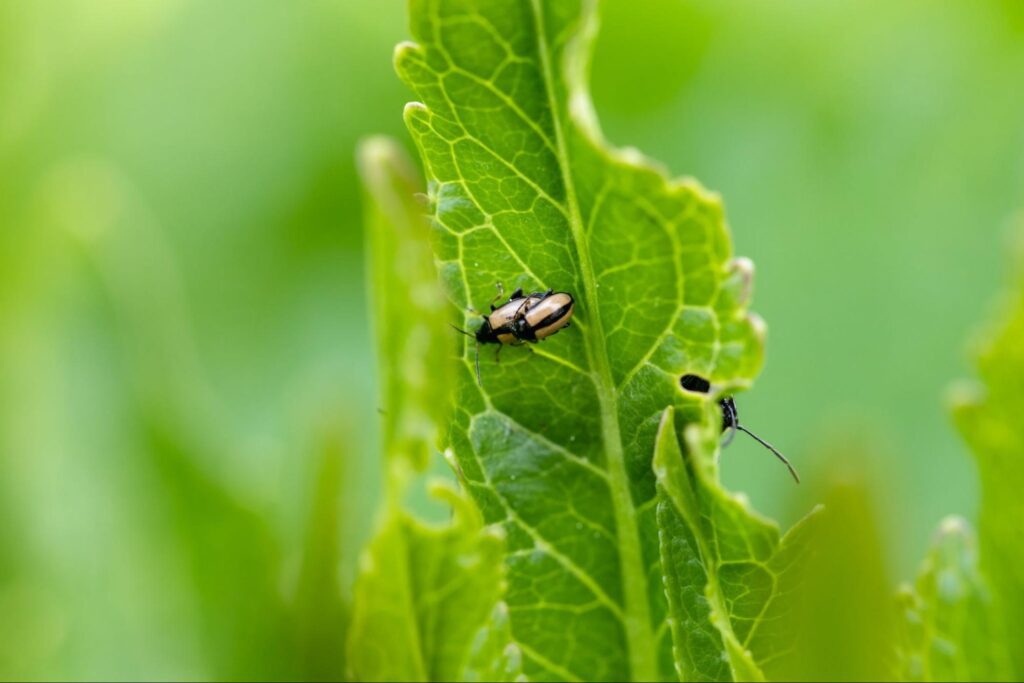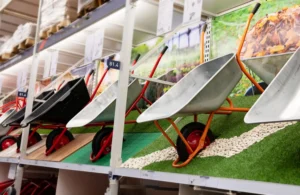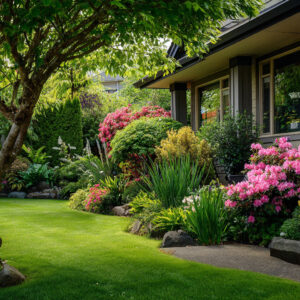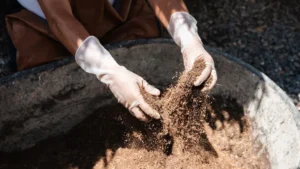Just because you see brown spots or tunnels in your yard doesn’t mean you need to grab toxic chemicals. Organic pest control for lawns can restore vitality to your lawn without the toxins. In this simple guide, you will learn how to identify the most common lawn pests in Atlanta, use common products like diatomaceous earth and neem oil, follow practices that promote soil health, and when to use WeedPro’s organic service for long-lasting effects.
With these techniques, you can protect your lawn the natural way.
Atlanta’s Most Common Lawn Pests: How to Spot Them
Lawn pests in Atlanta often invade your yard, devouring the roots, stems, and blades of grass, which compromises the turf’s thickness and color. By rapidly identifying the specific pest, you can extract your homemade solution before the damage spreads.
Which pests cause the most damage to lawns in Atlanta?
Grubs, armyworms, mole crickets, and fire ants are the main offenders because they consume the roots and soil life necessary for the health of your grass. Grubs will leave patches of yellowing grass, armyworms eat the grass blades, mole crickets will tunnel and wash away sod, and fire ants will create mounds that dry out the surrounding turfgrass.
How to recognize signs of grubs, fire ants, mole crickets, and armyworms
Check for these signals before treating:
- Yellow patches of grass that are easily gripped and pulled away usually have C-shaped grubs underneath.
- Look for small, unmarked, and dispersed mounds with busy ants nearby. This indicates the presence of fire ant nests, likely near a path.
- The spongy level surface and crescent-shaped divots visible as it gets dark indicate that mole crickets have been active.
- Evidence of armyworm feeding consists of irregular holes in grass blades and trails of chewed material.
Recognizing these indicators early on allows for the proper use of natural remedies and the development of a preventive schedule.
Top Natural Ingredients for Homemade Lawn Pest Control
Homemade solutions work by interfering with how insects function or behave. Let’s see how these key ingredients work and which pests they target:
| Ingredient | Action | Pests Controlled |
| Diatomaceous Earth (DE) | Dries out and scratches insect exoskeletons | Ants, Fleas, Mole Crickets |
| Neem Oil | Disrupts insect hormones and deters feeding | Aphids, Armyworms, Grubs |
| Bacillus thuringiensis | A stomach toxin that affects only larvae | Grub and caterpillar larvae |
| Beneficial Nematodes | Parasitize and kill pests living in the soil | Grubs, Cutworms, Flea larvae |
How does diatomaceous earth work to control lawn pests?
Diatomaceous earth works by physically shredding and dehydrating the outer shells of insects, inhibiting them from feeding and ultimately killing the insect. Safety is a key advantage of diatomaceous earth, as it is made from ‘natural’ silica powder; it is “safe for humans, pets, and beneficial insects” while controlling mainly crawling pests that attack the roots of the grass. I had learned that when using diatomaceous earth, lightly dust the area after mowing the lawn, as it’s most effective if no rain occurs following your application.
What are the benefits and uses of neem oil for lawn insects?
There are three key advantages of beneficial insecticides and fungicides when using neem oil as a remedy.
- A broad-spectrum repellent, as it interrupts the communicative signals ingested by insects, which discourage feeding.
- Growth regulator: It inhibits molting and reproduction in grubs and caterpillars.
- Disease suppression: It halts fungal diseases, such as brown patch, that cause problems in damp areas like Atlanta.
These benefits provide a flexible spray to protect your lawn.
How can Bacillus thuringiensis (Bt) target grub and caterpillar larvae?
Bt is a naturally occurring soil bacterium that produces protein crystals toxic to larvae when ingested. Once the Bt toxin is consumed, it paralyzes the digestive tract and causes death. When granules or a spray is applied when larvae are in the early lifecycle stage, Bt provides targeted control of pests, such as armyworms, sod webworms, and Japanese beetle grubs, without harming other organisms.
What role do beneficial nematodes play in natural grub control?
Beneficial nematodes are small parasitic worms that seek out grub and other soil pests and invade them, releasing bacteria that ultimately kill the grubs from the inside. These beneficial nematodes are introduced into moist soil in the evening and remain active through the breeding season, managing the populations of grubs and pest roots and enhancing the overall health of the soil.
How to make and apply garlic spray and essential oil remedies for lawn pests?
A simple homemade garlic spray can be made to repel any number of soft-bodied insects if appropriately applied:
- Crush five cloves of garlic into water and let them sit for 24 hours in a container.
- Next, strain it, then mix together with a teaspoon of mild liquid soap to emulsify the mixture, and transfer it to a spray bottle.
- Every 7–10 days, treat the affected areas (but never during the hottest parts of the day) with an even application.
This simple mixture interrupts an insect’s olfactory abilities, yet is non-toxic to your grass and beneficial insects.
Which companion plants and beneficial insects help deter lawn pests?
- Plants, such as marigolds, basil, and lavender, give off scents that repel pests, such as armyworms and aphids.
- Helpful predatory insects, such as ladybugs, lacewings, and ground beetles, are drawn to flowering borders.
- Birds that eat insects thrive when you plant native shrubs and add a water source.
Combining plants and beneficial insects builds on your lawn’s external defense system.
What are the limitations of homemade lawn pest control solutions?
Homemade solutions may not be adequate for the following:
1. If the infestation is widespread enough, the solution will need more than a localized solution.
2. If the pests were misidentified, and the treatment is not good.
3. If repeated applications become too long due to time constraints or timing with the weather.
Severe or ongoing issues may warrant professional service.
Protect Your Turf Without Compromise
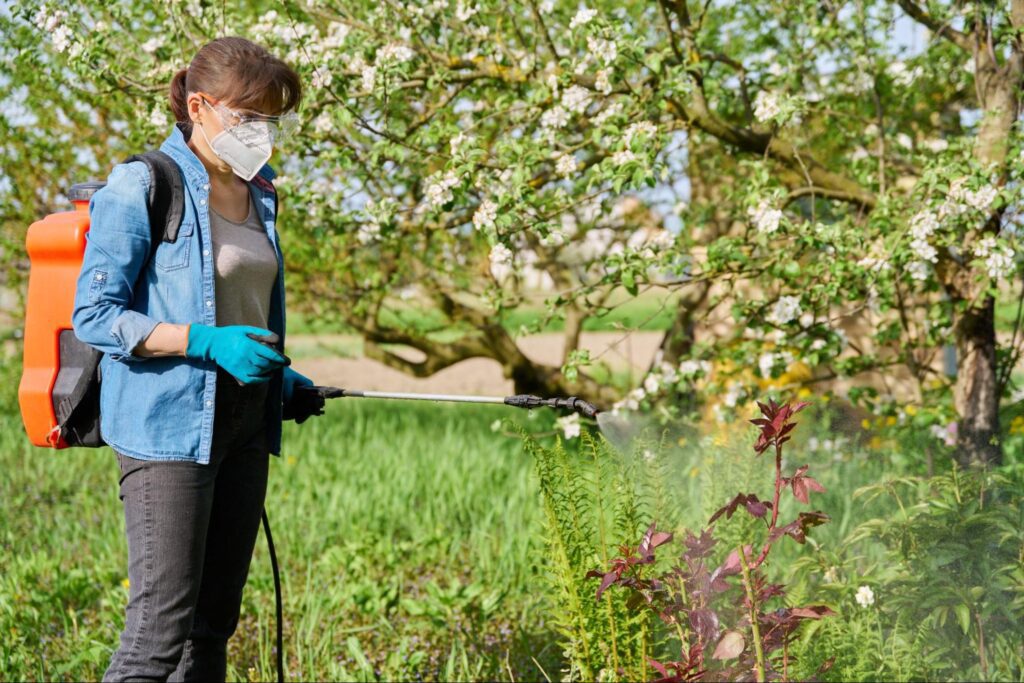
Bid farewell to chemical overload, and welcome safe, real, natural pest controls. Weed Pro offers some of the safest pest control products, combining application with monitoring to achieve high impact and reduced risk. Are you ready to protect your turf from pests or grubs?
FAQ
How effective are natural pest strategies like soap sprays?
They work well for light infestations, suffocating soft-bodied bugs. For larger invasions, they’re best used alongside other methods like nematodes or cultural controls.
Can you use dish soap to treat pests?
Yes, but only mild, biodegradable soap. Harsh detergents can damage leaf tissue and soil microbes—stick with garden-safe versions.
How often do you need to reapply organic repellents?
They tend to break down quickly (especially after rain), so reapply every 1–2 weeks for continued protection.
Want More Lawn Tips, Hacks, and Pro Secrets?
This is only the start. Head over to the Weed Pro Blog to explore lawn-smoothing mowing tricks, soil-transforming secrets, and more solutions tailored to Atlanta, Cumming, and Roswell climates.

